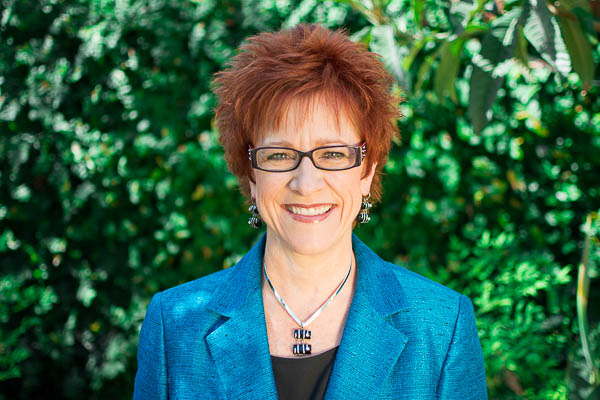My mother-in-law is currently in a secured memory care community. The price is very high – $6750 for 30 days of respite care. If we don’t move her within two weeks, the community fee for a permanent stay will be $10,000 and her monthly fee will be $9,000 a month. Are you kidding me? Who can afford this?
She was living in her own home six weeks ago, but a crisis you can read about HERE has left her adult children scrambling to find a permanent solution for my mother-in-law.
My husband, Chris, and I work in the senior housing profession, so who is better than us to evaluate the choices. We flew 1000 miles yesterday to be the experts on the ground in Seattle. We are going to visit three memory care communities today and one or two tomorrow. The best way to evaluate and compare retirement communities is in a short span of time. The crème always rises to the top.
We can’t base our decision on what the community looks like, the size of the rooms or the wonderful sales person. We are going to dig deeper and ask the following questions of each memory care community:
- What is the staff turnover? We want to see longevity of staff – particularly in the administrator, nurse, caregivers and possibly the chef.
- Do the staff and residents look happy? We will talk to some of each.
- What will be my mother-in-laws quality of life? What programming is offered? How often does live entertainment come in the building? How will they minimize her anxiety?
- How many hours does the nurse work per day? Twenty-four hours will always be the best answer, but you get what you pay for.
- What is the procedure if my mother-in-law falls? When my mom was in an assisted living community with dementia, every fall led to a terrifying emergency room (ER) visit that was stressful for her. If a nurse is on shift around the clock, it may save my mother-in-law from this stress. If the fall happens at 2:00 am and only a caregiver is on staff, the call to 911 will almost always lead to the terrifying ER visit.
- Do doctors come and visit my mother-in-law here or does she have to be driven to her doctor? Who will do that? Will someone accompany her? What are the costs?
- We will discuss my mother-in-law’s dietary needs and meet the chef. When my mother-in-law was in the hospital, she became incontinent. We hope it is not permanent and assume the diarrhea was from feeding her too many raw vegetables and fruit. She has not eaten those in years because of too much radiation after colon cancer. So it is important that we advocate for her in this regard. Just incontinence can cost an additional $1,000 a month.
- What is the initial community fee? What is the current monthly cost for room, board and care? What is the maximum cost it could potentially be? What are the additional costs? What have we not asked that could cost extra? What happens when someone is broke and can’t pay these hefty fees? We need to find out if the memory care community charges for my mother-in-law’s care by points, levels of care, or is all-inclusive. Pricing can be very grey and it is easy to be confused. Even us experts will have to see beyond the sales “smoke and mirror” answers.
- What is the history of their year over year monthly increases? We can’t just look at affordable costs today, but what if my mother-in-law lives for years?
- Is the room furnished? Do we just bring personal affects? Do we need to go buy a twin bed, TV or special chair?
- How do they handle hearing aids and glasses? My mother-in-law has two hearing aids that she has not used in six weeks.
- What is their procedure in contacting the family to give updates or let us know of a change in our loved one’s health?
- Is there anything that we should have asked but did not?
We will look at the entire memory care community space, her possible room and the outside walking area. I will keep you posted on our family evaluation and pricing for these communities. Hopefully, sharing my experiences and tips can help you too.
Diane Masson’s new guide book for seniors, “Your Senior Housing Options,” will be available next week on Amazon.com. If you sign up for my weekly newsletter on the right side of this blog, you will be notified when this valuable resource can be purchased. Check out my new website: Tips2Seniors.com or please follow me on Facebook.
Diane Twohy Masson is the author of “Senior Housing Marketing – How to Increase Your Occupancy and Stay Full,” available at Amazon.com with a 5-star rating. The book is required reading at George Mason University as a part of its marketing curriculum. Within this book, the author developed a sales & marketing method with 12 keys to help senior living providers increase their occupancy. Masson developed this expertise as a marketing consultant, sought-after blogger for senior housing and a regional marketing director of continuing care retirement communities in several markets. She has also been a corporate director of sales and a mystery shopper for independent living, assisted living, memory care and skilled care nursing communities in multiple states. Currently, Masson is setting move-in records as the regional marketing director of two debt-free Continuing Care Retirement Communities in Southern California – Freedom Village in Lake Forest and The Village in Hemet, California. Interestingly, this career started when she was looking for a place for her own mom and helped her loved one transition through three levels of care.




Diane/Chris, what a tough day/week/month/year! It seems like our generation has come a long way in extending life medically, but with no means to an end. Sometime I wonder if we’ve really done what’s best for folks… I know my grandparents wanted to live on their farm until death, but didn’t make it and passed quickly when they moved to town. And they never incurred expenses like we see today. The whole affect seems to stink – almost as though age is seen as a “cash cow” and nothing more. Imagine when we hit a hyper-inflated economy?! $10,000 or $15,000 per month? And what if that’s cheap? I wish you two well, and hopefully we’ll see you in MLT at some point.
Thanks Craig! I agree that senior care has sky rocketed. Many people think that their HMO or the government will take care of them. Medicare and HMOs will not pay for long-term care. Medicaid can currently kick in for skilled nursing care. There is no good solutions for assisted living and memory care if you don’t have the money to private pay. It is very expensive.
The most important thing is to see if the care facility accepts Medicaid. Some don’t. Each care facility has its own requirements. Generally they require that you cover the cost for the first two years. There is also the claw back clause that goes after the patient’s assets for the last five years from when Medicaid starts. There are exceptions for spousal assets. Medicaid nursing home coverage is available only to people who are unable to care for themselves at home. They must also meet their state’s eligibility limits regarding income and assets. This info is based on my experience with my mother. I am not an expert.
Thank you so much! Key question and point James. There are so few assisted living or memory care communities that offer Medicaid.
Lorie Eber
Personal Wellness Coach at Lorie Eber Wellness Coaching
This is a great roadmap. Thanks for the posting!
Thanks Lorie!
Diane, I am so sorry to hear of your troubling time with your mother’s health. I wanted to leave a comment and see if you were aware of ClaimJockey. We help families and long term care policy holders access their benefits and help to pay for care such as described above. I would love to talk with you and see if we can be of any assistance in the financing of your mom’s care. This is not a gimmick nor is there a cost to see if we can help. Call me direct at 816-272-1789, I look forward to speaking with you!